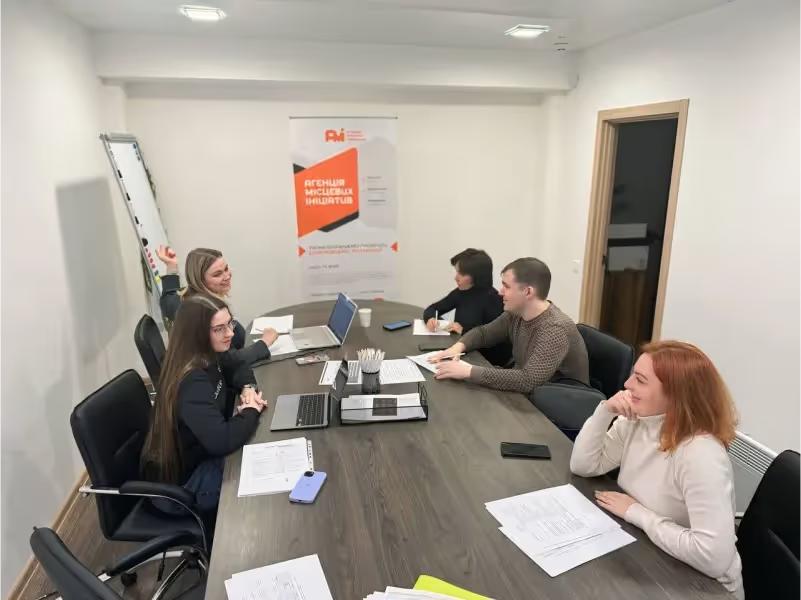NGO “Institute of Economic Research and Policy Consultations”

The post-war reconstruction of Kharkov is a huge challenge, requiring not only technical solutions, but also control over legality, transparency and compliance with standards. The project aimed to increase accountability and transparency in the restoration processes of residential buildings and social infrastructure to ensure that community funds are used efficiently, work is carried out safely and residents' rights are protected.
The team began work in March 2025, covering nine high-rise buildings and one civil protection structure.
The first step was a strategic study of the monitoring methodology, including site visits, photo and video fixation, building passports and collection of procurement data through Prozorro.
The team actively communicated with contractors and local governments, adapting the process to wartime constraints. Where access to facilities was restricted, partial photo-fixation and verification of open government data were used.
During the work, a series of training webinars were held for the team, which allowed to hone the methodology, increase professionalism and improve control procedures.
The project demonstrates that public control is not a formality, but an effective mechanism for protecting the rights of residents and the accountability of the authorities. Ensuring the transparency of restoration work ensures that homes are restored safely, with compliance with energy efficiency and barrier-free standards.
It is important that the information is made available to all citizens. Kharkiv residents can now see how money is spent, in what condition the facilities are, and participate in controls that increase trust in authorities and contractors.
The main difficulties were limited access to part of the facilities, delays with official responses from contractors, and war risks.
The team demonstrated a high level of professionalism and flexibility in applying alternative data collection methods, synchronizing work with authorities and the community.
The biggest achievement was not only the completion of the monitoring, but also the formation of transparency practices that lay the foundation for future reconstruction, as well as increasing the level of competence and solidarity of the team.
The project allowed residents to obtain detailed information about the progress of the restoration of their homes and social infrastructure. This increased the level of public activity: people began to more closely monitor the use of budget funds and participate in discussions on reconstruction. The public digital footprint created by the project engages new participants in monitoring and sets a standard of transparency for future initiatives. In addition, the systematic availability of information strengthened residents' trust in authorities and contractors, as the data became structured, verified and accessible.
The project has established a system of object certification, which will become a basic public monitoring tool for future projects. The team gained experience with open data and procurement analysis, which increases the efficiency of the use of funds. A public digital footprint has also been created that strengthens public control and engages residents in discussions. The project strengthened the Agency's team, ready to scale monitoring to other regions and areas of reconstruction, and established legally sound transparency practices that could serve as an example for other cities and communities.
You can support our mission and help implement more projects to develop communities and protect rights.